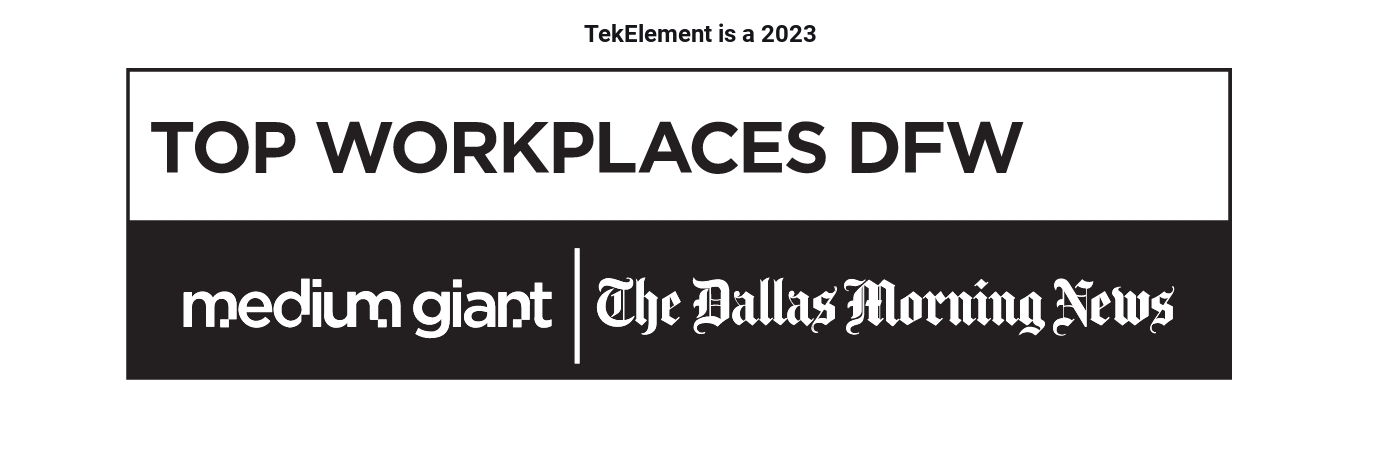Mastering The Remote Workplace
The rise of remote work has transformed business operations, enabling employees to work from anywhere while maintaining productivity and collaboration. However, the shift to a fully remote or hybrid workforce presents unique challenges, from cybersecurity risks to communication barriers and IT infrastructure limitations. Businesses that succeed in remote work environments leverage the right technology, policies, and security measures to create a seamless and efficient digital workplace.
At TekElement, we help organizations navigate the complexities of remote work by implementing scalable, secure, and high-performance IT solutions. Here’s how businesses can master the remote workplace with the right technology and strategy.
Establish a Secure and Reliable IT Infrastructure
Remote work requires a robust IT foundation that ensures employees can access company systems and data securely and efficiently. Organizations should prioritize:
- Cloud-Based Solutions: Enable remote employees to access files, applications, and systems from any device with platforms like Microsoft 365, Google Workspace, and cloud storage services.
- High-Speed Internet & VPN Access: Secure, encrypted connections via Virtual Private Networks (VPNs) protect sensitive company data while enabling safe remote access.
- Endpoint Security Management: Protect company devices with advanced security software, firewalls, and automated patch management to prevent cyber threats.
- Remote Device Management (MDM): Implement solutions like Microsoft Intune or VMware Workspace ONE to enforce security policies and monitor employee devices.
A well-structured IT infrastructure ensures business continuity, security, and operational efficiency in a remote work environment.
Strengthen Cybersecurity for a Remote Workforce
With employees working from different locations, cybersecurity risks increase significantly. Businesses must take a proactive approach to data protection, access control, and threat mitigation. Key cybersecurity measures include:
- Multi-Factor Authentication (MFA): Require additional verification beyond passwords to secure company accounts and systems.
- Zero Trust Security Model: Enforce strict access controls, ensuring that all users and devices are verified before accessing company networks.
- Data Encryption & Backup Solutions: Encrypt sensitive data and implement automated backup systems to protect against data loss.
- Security Awareness Training: Educate employees on phishing threats, social engineering attacks, and secure password management.
By prioritizing cybersecurity, organizations can minimize vulnerabilities and protect remote employees and business data from cyber threats.
Invest in Effective Collaboration and Communication Tools
Maintaining team cohesion and workflow efficiency in a remote environment requires seamless communication and collaboration tools. Organizations should implement:
- Video Conferencing (Zoom, Microsoft Teams, Google Meet): Facilitate virtual meetings, check-ins, and remote training sessions.
- Instant Messaging (Slack, Microsoft Teams): Allow quick, informal communication to replace in-office conversations.
- Project Management Software (Asana, Trello, Monday.com, Jira): Enable teams to track tasks, deadlines, and projects efficiently.
- Digital Whiteboards & Document Collaboration (Miro, MURAL, SharePoint, Google Drive): Foster real-time brainstorming and document editing.
The right collaboration tools bridge the gap between remote employees and in-office teams, ensuring productivity and engagement.
Optimize IT Support and Helpdesk Services
A fully remote workforce needs accessible and responsive IT support to resolve technical issues quickly. Businesses should consider:
- 24/7 Remote IT Helpdesk Support: Ensure employees can receive immediate assistance for connectivity, software, and hardware issues.
- Self-Service IT Portals: Provide employees with FAQs, troubleshooting guides, and ticketing systems for IT-related concerns.
- Automated Software Updates & Remote Patching: Keep devices secure and up to date without requiring on-site maintenance.
A well-managed remote IT support system enhances employee efficiency and prevents downtime due to technical issues.
Standardize Remote Work Policies and Compliance Guidelines
Technology alone isn’t enough—organizations must establish clear remote work policies to maintain security, accountability, and compliance. Key policies should address:
- Acceptable Use of Company Devices & Software: Define how employees should use company-provided equipment and applications.
- Remote Security Compliance: Establish guidelines for data access, password policies, and device security.
- Work Hours & Availability Expectations: Set clear expectations for remote employee schedules, availability, and response times.
- Performance Metrics & Accountability: Use key performance indicators (KPIs) to track remote employee productivity and efficiency.
Clearly defined policies ensure that remote employees stay aligned with company expectations and security requirements.
Leverage Cloud-Based Business Applications
Cloud computing has become essential for scaling remote work operations and ensuring that employees have access to the tools they need. Businesses should integrate:
- Enterprise Resource Planning (ERP) Systems: Manage business operations, finances, and customer relationships from a centralized platform.
- Customer Relationship Management (CRM) Tools: Ensure remote sales and support teams can access customer data and streamline interactions.
- Time Tracking & Productivity Software: Monitor employee performance and optimize workloads.
With cloud-based applications, businesses can improve efficiency, reduce IT overhead, and enhance collaboration across remote teams.
Plan for the Future: Scalability and Innovation
Remote work is no longer a short-term trend—it is a long-term business strategy. Organizations must plan for future growth and innovation by:
- Investing in Scalable IT Infrastructure: Ensure remote work technology can adapt to business expansion.
- Adopting AI & Automation Tools: Leverage artificial intelligence for workflow automation, cybersecurity, and customer service.
- Exploring Hybrid Work Solutions: Implement a seamless transition between in-office and remote work models.
Future-proofing the remote work environment enables businesses to remain competitive and agile in a rapidly evolving market.
TekElement, is a premier MSP company based in Dallas, TX. We believe that innovation is the cornerstone by which organizations succeed or fail. Our focus for our customers is to identify areas where these tech elements intersect with business-critical operations and apply innovative approaches and solutions to ensure technology is working in harmony with your business strategy.


